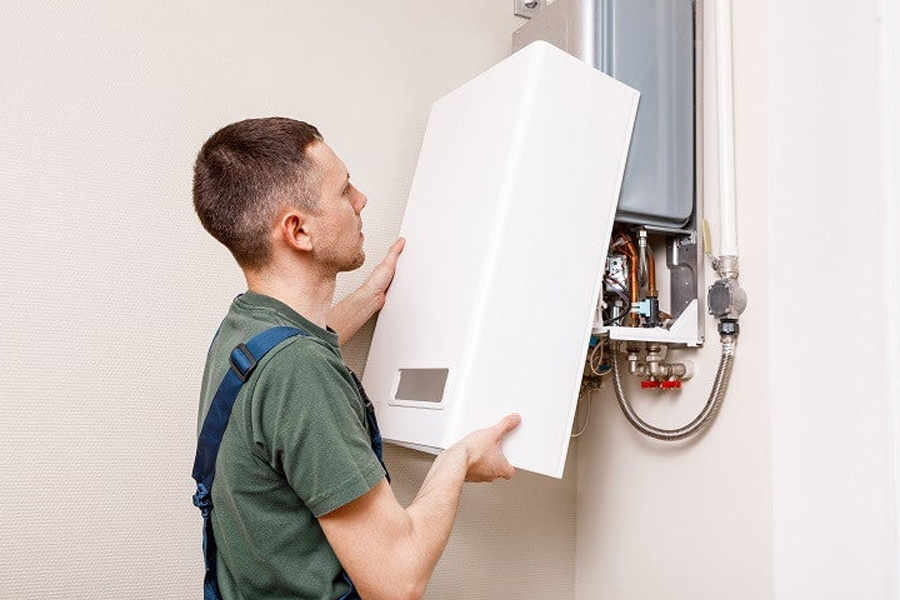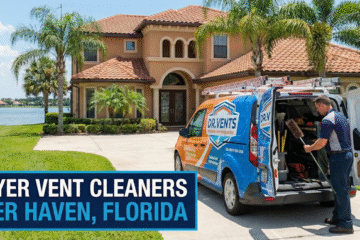Boilers UK: Find the Perfect Heating System

Image Source: www.theecoexperts.co.uk
Selecting the right central heating system is a significant decision for any UK homeowner. This guide aims to help you find the perfect solution for your property. Modern heating technology has evolved dramatically, offering superior performance compared to older models.
Leading providers, such as British Gas, serve millions of homes across the country with trusted solutions. Today’s A-rated boilers are engineered for high efficiency. They can lead to substantial savings on energy bills while also reducing your carbon footprint.
Choosing the ideal heating system requires careful thought. Key factors include the size of your home, your household’s hot water demands, and your overall budget. The UK market presents a wide array of options from various manufacturers.
This comprehensive resource will provide professional insights into different types of heating systems, installation considerations, efficiency ratings, and innovative solutions. Our goal is to equip you with the knowledge needed to make a confident and informed choice for your home.
Key Takeaways
- Choosing the correct heating system is a crucial decision for homeowners.
- Modern boilers offer significantly improved energy efficiency and reliability.
- Selecting the perfect system depends on your property’s size and hot water needs.
- Upgrading to an A-rated model can lead to lower energy bills and a smaller carbon footprint.
- The UK market offers a diverse range of options from leading manufacturers.
- Understanding different system types and efficiency ratings is key to making an informed choice.
Overview of Modern Boilers in the UK
The landscape of domestic heating in the UK has undergone a remarkable transformation. Modern units are sophisticated closed vessels that heat water efficiently. Their construction uses welded steel or alloys for superior strength and safety.
This evolution marks a significant departure from older, less efficient designs.
Evolving Heating Technologies
Heating technology has progressed from basic, riveted iron systems. Today’s models feature advanced control systems and intelligent monitoring. Improved heat exchangers are central to their high performance.
This modern approach allows for precise management of the heating system. It ensures optimal comfort and energy efficiency for any home.
Energy Efficiency Trends
Current UK regulations now mandate high-performance standards. A-rated condensing boilers are the standard for new installations. Their key advantage is recovering heat from exhaust gases.
This process drastically improves overall efficiency and reduces fuel consumption. The industry is also focused on lowering carbon emissions.
Homeowners can choose from various heat sources. These range from traditional natural gas to emerging biofuel options. This diversity supports different needs and budgets.
Key Features and Benefits of Boilers
Today’s advanced heating appliances are designed with user convenience and household safety as top priorities. They combine space heating and hot water production into one efficient system.
This dual functionality eliminates the need for a separate hot water cylinder. It saves valuable space within the home.
Key features that distinguish modern units include:
- Comprehensive warranties covering parts and labour, often for five years or more with annual servicing.
- Integrated safety mechanisms like carbon monoxide detectors and automatic shut-off valves.
- Smart controls, including programmable timers and wireless thermostats for optimal scheduling.
These boilers achieve exceptional efficiency, often over 90%. They convert nearly all fuel into usable heat.
Maintaining the correct pressure is simple with built-in gauges. This ensures the central heating and hot water work effectively.
The long-term financial benefits are clear. Homeowners enjoy lower energy bills and reduced maintenance costs. This makes a new unit a sound investment for any property.
Boiler Installation and Replacement Guide
Knowing the right time to upgrade your heating system can prevent unexpected breakdowns and high costs. This guide outlines the key signs for replacement and the steps for a smooth installation.
When to Replace Your Boiler
Homeowners should consider a new boiler if their current unit is over 10-15 years old. Frequent repairs, strange noises, and rising energy bills are clear indicators.
Planning the replacement during warmer months offers better availability and pricing. It also minimises disruption to household heating.
Some households may qualify for government grants. These schemes can significantly lower the initial cost of an upgrade.
Steps for a Seamless Installation
A professional installation begins with a full heating survey. A Gas Safe engineer assesses your home to recommend the correct boiler type and size.
The actual installation is a multi-stage process. It ensures safety and optimal performance for your new system.
Comparison of Installation Complexities
| Installation Type | Estimated Duration | Key Considerations |
|---|---|---|
| Like-for-like replacement | 1 day | Simplest and quickest option. |
| Switching boiler type (e.g., conventional to combi) | 2 days | Requires additional pipework adjustments. |
| Relocating the boiler unit | 2-3 days | Involves extensive new pipework, increasing labour and time. |
After fitting the new unit, the engineer commissions the system. This includes checking for leaks, testing safety devices, and calibrating controls.
Finally, you will receive a demonstration of the new controls and building regulations certification. Registering the warranty and booking the first annual service is crucial for ongoing cover.
Flexible payment options are often available. These can allow you to spread the cost over several years with a £0 deposit, subject to status.
Energy Savings and Boiler Efficiency
Annual energy bills can be substantially lowered by focusing on two critical aspects: system efficiency and pressure management. Upgrading from a D-rated to an A-rated unit could save a typical semi-detached home around £180 per year.
This significant reduction in fuel costs demonstrates how small efficiency improvements translate to meaningful savings. Modern condensing technology recovers heat that would otherwise escape through flue gases.
Maintaining Optimal Boiler Pressure
Proper pressure is essential for efficient operation. Most systems work best between 1-2 bar when cold. The built-in gauge shows colour-coded zones for easy monitoring.
Low pressure reduces heating effectiveness, while high pressure can trigger safety valves. Homeowners should check their gauge regularly and recognise when adjustments are needed.
To repressurise safely, turn off the unit and slowly open the filling loop valves. Monitor the pressure gauge closely until it reaches the green zone. Then close the valves securely.
Gradual pressure loss may indicate minor leaks. Frequent drops suggest system issues that need professional attention. Annual servicing helps maintain long-term efficiency.
Diverse Types of Boilers Explained
The UK heating market presents homeowners with several primary categories of heating units. Grasping the core differences between these types is the first step toward selecting the ideal system for a property.
Combi, Conventional, and System Boilers
A combi, or combination, unit is an all-in-one appliance. It provides central heating and hot water on demand directly from the mains. This design eliminates the need for a cold water tank or hot water cylinder, saving considerable space.
Conventional boilers, often called regular models, suit larger homes. They work with a separate hot water cylinder and a feed tank in the loft. This setup is excellent for properties where several people need hot water at the same time.
The system type boiler offers a modern compromise. It requires a cylinder for stored water but integrates key components within the main unit. This simplifies installation and works well with good mains pressure.
Selecting the Right Type for Your Home
The best choice depends heavily on the size of your home and your water usage. A combi boiler is typically perfect for a smaller house or flat with one bathroom.
For a larger family home with multiple bathrooms, a conventional or system type is often more suitable. These systems can meet high simultaneous demand for heating and hot water.
Consider your water pressure too. Combi models need strong mains pressure, while conventional types can function effectively with lower pressure.
Product Spotlight: Amberheat Boilers
Homeowners exploring modern heating solutions will find Amberheat products offering compelling features in a crowded market. This brand competes effectively with established names like Worcester Bosch, providing innovative technology at competitive pricing.
Innovative Features and Energy-Saving Benefits
Amberheat units incorporate advanced condensing technology that achieves exceptional energy efficiency. Their compact designs allow flexible installation in various property types. Intelligent control systems enable precise temperature management.
The brand offers a comprehensive warranty package, typically covering five years when annual service requirements are met. This protection includes both parts and labour, providing significant peace of mind.
Customers can choose from a wide range of models suitable for different home sizes. From compact combi units to powerful system boilers, there’s an option for every heating need. Getting a personalised quote helps determine the ideal solution.
Installation is straightforward for qualified engineers, with most units taking about one day to be properly fitted. The combination of competitive price points and long-term savings makes Amberheat an attractive choice for budget-conscious homeowners seeking reliable heating performance.
Innovative Heating Solutions: Spotlight on Amberheat
The latest advancements in home heating focus on intelligent integration and whole-house optimisation. Modern systems extend beyond the central unit to create comprehensive ecosystems.
These integrated solutions manage heating, air quality, and energy consumption simultaneously. Amberheat has developed technology that connects various components seamlessly.
Amberheat systems for ultimate energy performance
Intelligent thermostats form the core of these advanced heating systems. They learn household patterns and adjust schedules automatically to optimise fuel usage.
Zone control capabilities allow different rooms to maintain individual temperatures. This prevents energy waste in unused spaces while maximising comfort.
Smartphone connectivity provides remote access and real-time monitoring. Homeowners receive instant alerts if heating is left on when away.
The systems incorporate pressure monitoring and automatic diagnostics. They detect potential issues early, preventing costly failures.
Integration with smart home platforms enables voice control and automation. Sophisticated algorithms manage heat volume based on real-time demand.
Compared to traditional installations, these integrated systems demonstrate measurable improvements in efficiency and reliability. They represent the future of home heating management.
Conclusion
Investing in a modern heating system is a forward-thinking decision for any UK property owner. This guide has outlined the essential steps to find the perfect solution, focusing on your home‘s specific needs and your budget.
The advantages of upgrading are clear. Modern units offer superior heating efficiency and reliability, justifying the initial investment with long-term savings.
Professional installation by a Gas Safe engineer is non-negotiable for safety and to validate the manufacturer’s warranty. Providers like British Gas offer flexible payment plans, making a new system accessible.
Commit to an annual service to maintain peak performance for many years. We encourage you to request a personalised quote today.
Taking this informed step ensures your home benefits from efficient, reliable heating and hot water, representing excellent value.
FAQ
What is the average cost of a new boiler installation?
The price of a new boiler and its installation varies significantly based on the boiler type, brand, and complexity of the work. A straightforward combi boiler replacement typically starts from around £2,000, while a full system change with a new hot water cylinder can cost considerably more. Obtaining several quotes from accredited installers is the best way to get an accurate price for your home.
How long does a boiler installation usually take?
For a standard replacement, a professional installer can often complete the work within one to two days. A more complex installation, such as switching from a conventional system to a combi boiler, may take longer, potentially up to three days, as it involves altering pipework and removing the old hot water tank.
What are the main types of central heating boilers available?
The three primary types are combi, system, and conventional (or regular) boilers. A combi boiler provides heating and hot water on demand without a separate tank. A system boiler requires a cylinder for storing hot water but has most components built-in. A conventional boiler needs both a cold water storage tank and a hot water cylinder, making it suited for larger homes with high water demand.
How can I improve my boiler’s efficiency?
A> Improving efficiency involves several steps. An annual service by a Gas Safe registered engineer is crucial. Additionally, installing a smart thermostat allows for better control over your heating, and ensuring your system is cleansed and that the boiler pressure is maintained at the correct level (usually between 1 and 1.5 bar) will help it run optimally.
When should I consider replacing my old boiler?
It is wise to consider a replacement if your boiler is over 10-15 years old, requires frequent repairs, or is no longer energy efficient. Modern boilers, such as those from Worcester Bosch or Amberheat, offer far greater efficiency, which can lead to substantial savings on your energy bills and improved home comfort.
What warranty should I expect with a new boiler?
A> A standard warranty for a new heating system typically ranges from 5 to 10 years, with some manufacturers offering extended guarantees. The length of the warranty often depends on the model and whether the installation is carried out by an accredited installer. It is a key factor to consider alongside the initial price.
Leave a reply
You must be logged in to post a comment.













